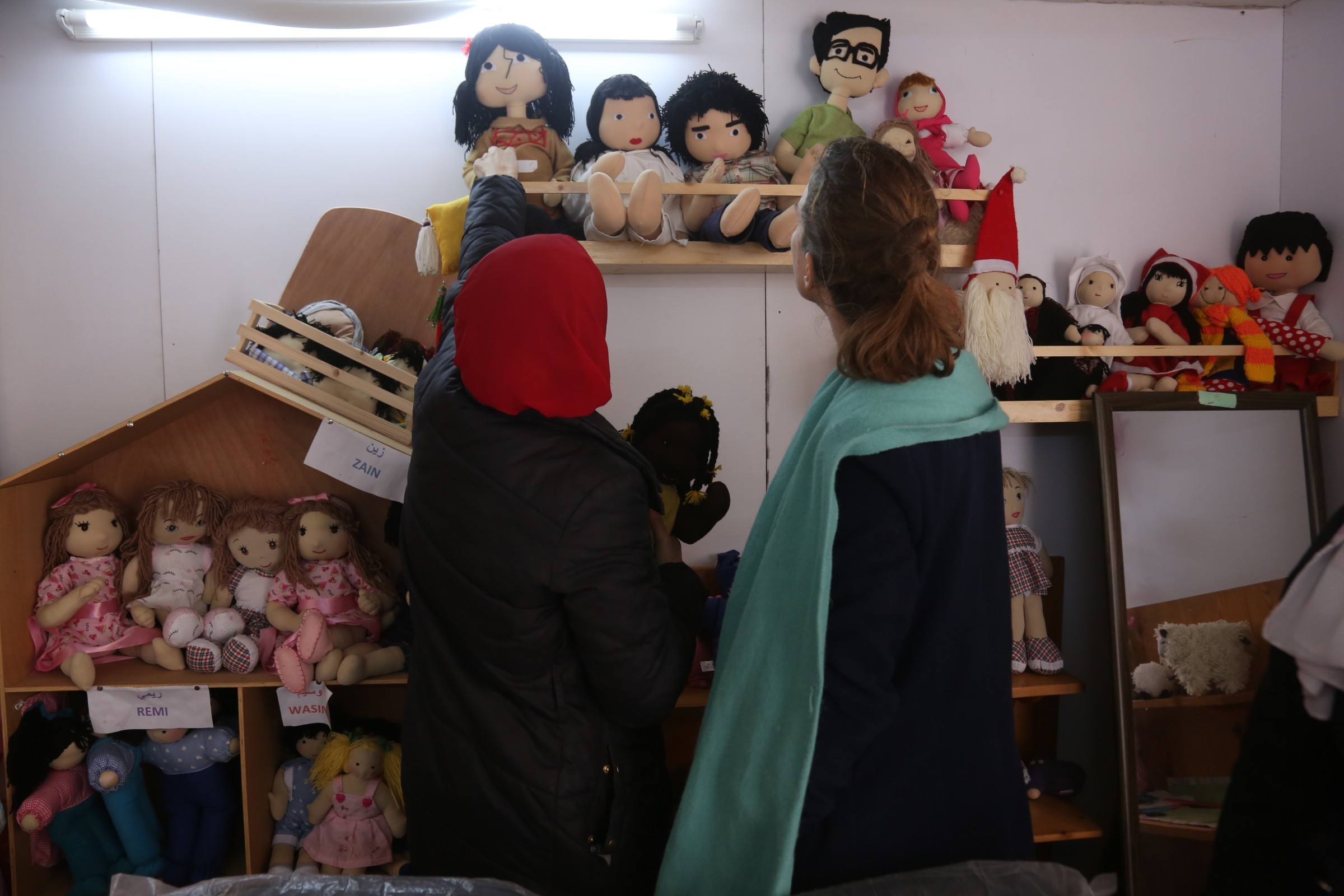International Cooperation
Frieda supports long-standing programmes in Bosnia and Herzegovina, Kosovo, Israel/Palestine, Algeria, and Morocco. Frieda's programmes are open for women, children, and young people. Many of them face multiple discriminations and belong to socially marginalised groups. The aim of the projects is to reduce violence and social exclusion and to empower the participants. Men and boys are included both as direct participants and as allies.
The years of conflict and fragility in the countries where Frieda operates lead to high poverty rates and pronounced patriarchal values and roles. Laws are often inadequate or poorly enforced. This is closely linked to the fact that certain population groups have limited access to basic services, important resources, and political decision-making processes. Local civil society plays a major role in demanding these rights and initiating reform processes. Therefore, Frieda strengthens local civil society through its programmes in Israel/Palestine (from 1970), Southeast Europe (from 1995), and the Maghreb (from 2000).
Frieda's programmes contribute to the achievement of the 2030 Agenda for Sustainable Development, particularly Goal 5 (Gender Equality and Reduction of Sexual and Gender-Based Violence) (SDG 5) and Goal 16 (Peaceful, Just, and Inclusive Societies) (SDG 16).

How does Frieda work?
Frieda applies an intersectional approach based on the analysis of gender-specific structural discrimination. As such, Frieda adheres to the principles of conflict-sensitive programme management. Measures are designed to anticipate and detect unintended negative impacts as early as possible.
This is only possible through well-established local partner organisations on the ground. They are familiar with the needs of the local population and have access to Frieda's target groups. Therefore, Frieda’s work is designed and implemented together with locally rooted partner organisations. The ownership of its projects lies with the local organisations, whereas Frieda takes the role of contributing with an outsider’s perspective to the development of the projects as well as to the institutional capacities of its partners. Frieda's programmes operate on individual,community, and structural societal-political levels. This holistic approach aims to create social change towards a non-violent, gender-just society as sustainably as possible.
Long-term Cooperation with Partners
As societal change takes time, the programmes are designed for long-term cooperation:. Therefore, Frieda supports the work of its partner organisations for up to 10 years.
The cooperation with local partner organisations is based on a cooperatively established partnership policy. This is based on the principles of feminist solidarity, as well as on transparency, mutual accountability, and sustainability. Partner organisations are selected based on clear criteria regarding shared core values, expertise, and management, and, if desired, are supported in reinforcing their capacities. Frieda acts as a bridge between donors in Switzerland and local partner organisations. Frieda provides partners with support, tools, expertise, financial resources, and access to learning and innovation networks. The programmes are looked after by the programme managers in Bern and supported by local coordinators. Thus, the projects remain entirely under the responsibility and decision-making power of the local partner organisations with their long-standing expertise.

Approach to the Work
Frieda applies a gender-transformative and a human rights-based approach (HRBA) in all its programmes to fight unjust and unequal social processes and institutions. More about the gender and the human rights-based approach.
Networks
Networks are of central importance for Frieda's work both in Switzerland and abroad Exchange and knowledge transfer between the various actors are facilitated and maintained in regular forums.
Here you will find the local partner organisations.
In Switzerland, Frieda belongs to the Gender and Health Alliance GEHA, with which it receives core funding from the Swiss Agency for Development and Cooperation (SDC). Frieda is also accredited by Swiss Solidarity and the ZEWO Foundation and is a member of Alliance Sud, the alliance of Swiss NGOs working in international cooperation.


![chams_marokko_2020_lamia_naji_7[1].png](/en/img/asset/YXNzZXRzLzAyX2xhZW5kZXIvMDNfbWFyb2trby9jaGFtcy9jaGFtc19tYXJva2tvXzIwMjBfbGFtaWFfbmFqaV83WzFdLnBuZw/chams_marokko_2020_lamia_naji_7%5B1%5D.png?w=2400&h=3200&s=214577c097920044b25ea093589a5c2e)
